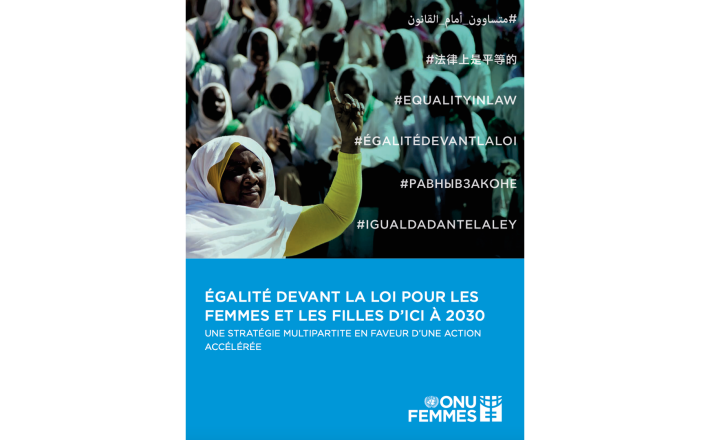Equality in law for women and girls by 2030
Source: UN Women
More than 2.5 billion women and girls around the world are affected in multiple ways by discriminatory laws and the lack of legal protections. In response, UN Women, the African Union, the Commonwealth, Inter-Parliamentary Union, Organisation Internationale de la Francophonie, and Secretaría General Ibero-Americana have jointly issued “Equality in law for women and girls by 2030: A multistakeholder strategy for accelerated action” in close collaboration with the Office of the United Nations High Commissioner for Refugees, the United Nations Office on Drugs and Crime, Equality Now, Global Citizen, Global Campaign for Equal Nationality Rights, International Association of Women Judges, International Development Law Organization, Muslims for Progressive Values, and Women’s Learning Partnership to tackle persisting discrimination in law.
Between 2019 and 2023, the strategy seeks to fast track the repeal of discriminatory laws in six thematic areas—comprehensive reforms, women’s economic empowerment, minimum age of marriage provisions, nationality rights, discriminatory rape laws, and family and personal status laws—in 100 countries and is expected to address the legal needs of more than 50 million women and girls.
Click here to see the report.

More than 2.5 billion women and girls around the world are affected in multiple ways by discriminatory laws and the lack of legal protections. In response, UN Women, the African Union, the Commonwealth, Inter-Parliamentary Union, Organisation Internationale de la Francophonie, and Secretaría General Ibero-Americana have jointly issued “Equality in law for women and girls by 2030: A multistakeholder strategy for accelerated action” in close collaboration with the Office of the United Nations High Commissioner for Refugees, the United Nations Office on Drugs and Crime, Equality Now, Global Citizen, Global Campaign for Equal Nationality Rights, International Association of Women Judges, International Development Law Organization, Muslims for Progressive Values, and Women’s Learning Partnership to tackle persisting discrimination in law.
Between 2019 and 2023, the strategy seeks to fast track the repeal of discriminatory laws in six thematic areas—comprehensive reforms, women’s economic empowerment, minimum age of marriage provisions, nationality rights, discriminatory rape laws, and family and personal status laws—in 100 countries and is expected to address the legal needs of more than 50 million women and girls.
Click here to see the report.